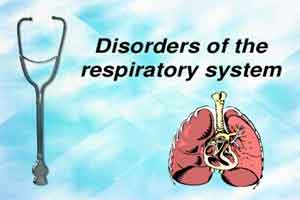- Home
- Medical news & Guidelines
- Anesthesiology
- Cardiology and CTVS
- Critical Care
- Dentistry
- Dermatology
- Diabetes and Endocrinology
- ENT
- Gastroenterology
- Medicine
- Nephrology
- Neurology
- Obstretics-Gynaecology
- Oncology
- Ophthalmology
- Orthopaedics
- Pediatrics-Neonatology
- Psychiatry
- Pulmonology
- Radiology
- Surgery
- Urology
- Laboratory Medicine
- Diet
- Nursing
- Paramedical
- Physiotherapy
- Health news
- Fact Check
- Bone Health Fact Check
- Brain Health Fact Check
- Cancer Related Fact Check
- Child Care Fact Check
- Dental and oral health fact check
- Diabetes and metabolic health fact check
- Diet and Nutrition Fact Check
- Eye and ENT Care Fact Check
- Fitness fact check
- Gut health fact check
- Heart health fact check
- Kidney health fact check
- Medical education fact check
- Men's health fact check
- Respiratory fact check
- Skin and hair care fact check
- Vaccine and Immunization fact check
- Women's health fact check
- AYUSH
- State News
- Andaman and Nicobar Islands
- Andhra Pradesh
- Arunachal Pradesh
- Assam
- Bihar
- Chandigarh
- Chattisgarh
- Dadra and Nagar Haveli
- Daman and Diu
- Delhi
- Goa
- Gujarat
- Haryana
- Himachal Pradesh
- Jammu & Kashmir
- Jharkhand
- Karnataka
- Kerala
- Ladakh
- Lakshadweep
- Madhya Pradesh
- Maharashtra
- Manipur
- Meghalaya
- Mizoram
- Nagaland
- Odisha
- Puducherry
- Punjab
- Rajasthan
- Sikkim
- Tamil Nadu
- Telangana
- Tripura
- Uttar Pradesh
- Uttrakhand
- West Bengal
- Medical Education
- Industry
Music therapy helps recovery from respiratory disorders

Music therapy can increase effectiveness of standard rehabilitation that patients with chronic obstructive pulmonary disease (COPD) and other chronic respiratory disorders receive, said a new study.
COPD is a progressive lung disease with symptoms including shortness of breath, wheezing, an ongoing cough, frequent colds or flu, and chest tightness.
The findings suggest that music therapy may be an effective addition to traditional treatment for these disorders.
"The results of this study provide a comprehensive foundation for the establishment of music therapy intervention as part of pulmonary rehabilitation care," said study co-author Jonathan Raskin from Mount Sinai Beth Israel (MSBI), a hospital in New York, US.
The 68 study participants were diagnosed with chronic disabling respiratory diseases, including COPD.
Over the course of six weeks, a randomized group of these patients attended weekly music therapy sessions.
Each session included live music, visualizations, wind instrument playing and singing, which incorporated breath control techniques.
Certified music therapists provided active music-psychotherapy. The music therapy sessions incorporated patients' preferred music, which encouraged self-expression, increased engagement in therapeutic activities and an opportunity to cope with the challenges of a chronic disease.
"The care of chronic illness is purposefully shifting away from strict traditional assessments that once focused primarily on diagnosis, morbidity and mortality rates," Joanne Loewy from MSBI noted.
"Instead, the care of the chronically ill is moving toward methods that aim to preserve and enhance quality of life of our patients and activities of daily living through identification of their culture, motivation, caregiver/home trends and perceptions of daily wellness routines," Loewy said.
COPD is a progressive lung disease with symptoms including shortness of breath, wheezing, an ongoing cough, frequent colds or flu, and chest tightness.
The findings suggest that music therapy may be an effective addition to traditional treatment for these disorders.
"The results of this study provide a comprehensive foundation for the establishment of music therapy intervention as part of pulmonary rehabilitation care," said study co-author Jonathan Raskin from Mount Sinai Beth Israel (MSBI), a hospital in New York, US.
The 68 study participants were diagnosed with chronic disabling respiratory diseases, including COPD.
Over the course of six weeks, a randomized group of these patients attended weekly music therapy sessions.
Each session included live music, visualizations, wind instrument playing and singing, which incorporated breath control techniques.
Certified music therapists provided active music-psychotherapy. The music therapy sessions incorporated patients' preferred music, which encouraged self-expression, increased engagement in therapeutic activities and an opportunity to cope with the challenges of a chronic disease.
"The care of chronic illness is purposefully shifting away from strict traditional assessments that once focused primarily on diagnosis, morbidity and mortality rates," Joanne Loewy from MSBI noted.
"Instead, the care of the chronically ill is moving toward methods that aim to preserve and enhance quality of life of our patients and activities of daily living through identification of their culture, motivation, caregiver/home trends and perceptions of daily wellness routines," Loewy said.
Next Story


